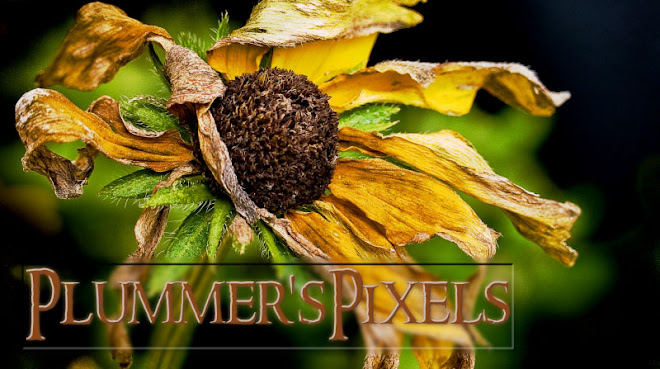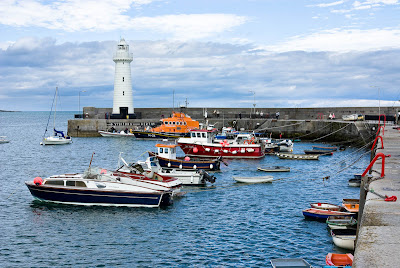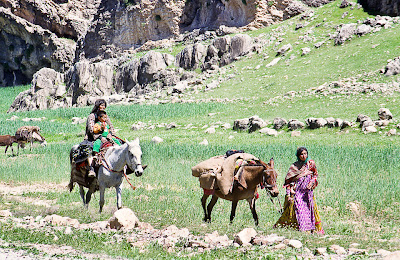Tomorrow is the anniversary of the armistice that ended the horrors of World War One. At the eleventh hour of the eleventh day of the eleventh month the guns fell silent. Since then, November 11 has been set aside as a day to remember all those who gave their lives in the armed forces for our freedoms. In UK, people mark that day by wearing a red paper poppy. (The poppy thrived in the soil between the trenches of Flanders that was torn up by bombs and shells. It was adopted as the symbol of the horrors of War.) That tradition is still strong. On the way to the airport in Tokyo today I saw several westerners wearing poppies in the lapels of their business suits. Here in the US we will celebrate “Veterans Day” to remember those who served for our freedoms. There will be ceremonies and maybe even parades, but often the focus will be on “past” wars. It is easy to remember the “acceptable” conflicts of WW II, Korea, and nowadays, even Viet Nam. Those wars are safe. The conflict has ended, the pain is past and the horrors are safely confined to movies and television documentaries.That is not true of the present conflict in Iraq.
On a recent visit to Calgary I noticed that the flags at the airport were flying at half-staff. It was not a special holiday and the newspapers had no reports that an eminent citizen had died. The reason was that a member of the Canadian armed services who had been killed overseas was returning home. I confess that I thought this was a “nice” gesture and continued on my way. Tonight I watched a TV report about how the ordinary Canadian people pay their respects to Canada’s fallen. The article made me compare the way Canada acknowledges its fallen with the air of secrecy that surrounds the sacrifice by the US forces. Here, we are regularly informed about numbers. The trouble is (or maybe the point is) we are immune to numbers. An article that four soldiers were killed by an IED evokes no response. The sight of those four bodies returning home, four flag draped coffins, grieving families, distraught children and the effect this has on four different communities might make us appreciate the full cost of this futile war.
We rightly ridicule government attempts to stifle news and feed propaganda to its citizens. When that is our government’s policy and it also negates the full sacrifice of our fallen, it is unconscionable.
I memorized this verse at school in the 50s when the horrors of WWII were still visible in Europe. My teacher was an "old" lady. She probably shared in the sacrifices of WW I. The thoughts it expresses are still applicable to the heroes of today.
They shall not grow old as we that are left grow old,
Age shall not weary them, nor the years condemn
At the going down of the sun and in the morning
We will remember them.
Laurence Binyon (1869-1943),















 Looking at some of the initial “keepers” I noticed marks and smudges at the same position on each image. There was dirt on the camera sensor. Being able to make “repairs” with Lightroom software reinforced the joys of shooting digital. Hopefully, this weekend will offer another chance to practice with that zoom lens and capture the Laughing Gulls - this time with a clean sensor.
Looking at some of the initial “keepers” I noticed marks and smudges at the same position on each image. There was dirt on the camera sensor. Being able to make “repairs” with Lightroom software reinforced the joys of shooting digital. Hopefully, this weekend will offer another chance to practice with that zoom lens and capture the Laughing Gulls - this time with a clean sensor.



 As a friend remarked in Sunday school last week, “We are not called to change the world but we are responsible for our own actions”. So, I shall not be participating in the 2008 Olympics. I shall not watch the television coverage and I shall not buy products from companies that support the games. I know my decisions will have absolutely no affect on China’s human rights policies or how the games evolve. But I remain a true optimist. I remember how Horiatio and his two companions held the bridge and saved Rome, how the 300 Spartans helped defeat the Persian invaders and how the defenders of the Alamo bought time for Texas. Maybe, just maybe, my little gesture will encourage others and like these photographs of two different sides of the Texas story, a gesture doomed to defeat can lead to change. Maybe also, that spokesman’s comment will awaken all the presidential candidates to our nation’s real weakness - a weakness caused because we are so indebted to foreigners that we have no freedom to act as we choose.
As a friend remarked in Sunday school last week, “We are not called to change the world but we are responsible for our own actions”. So, I shall not be participating in the 2008 Olympics. I shall not watch the television coverage and I shall not buy products from companies that support the games. I know my decisions will have absolutely no affect on China’s human rights policies or how the games evolve. But I remain a true optimist. I remember how Horiatio and his two companions held the bridge and saved Rome, how the 300 Spartans helped defeat the Persian invaders and how the defenders of the Alamo bought time for Texas. Maybe, just maybe, my little gesture will encourage others and like these photographs of two different sides of the Texas story, a gesture doomed to defeat can lead to change. Maybe also, that spokesman’s comment will awaken all the presidential candidates to our nation’s real weakness - a weakness caused because we are so indebted to foreigners that we have no freedom to act as we choose. 



 Why do I mention Aunt Edie? In recent months the subject of immigrants, border fences and national security has filled the airways. Aunt Edie is an example of past times. Coming from Ireland she was a textile worker. That was probably a useful profession in 1929. When she applied for that visa she was sure that immigrating to USA would give her a better life than staying in Belfast. I know that thought pattern continues today. People only leave home when the benefits on the other side of the fence are clearly better. For Aunt Edie, the ties to home were more powerful than the greener grass across the Atlantic. Every day, immigrants to USA – legal and illegal – make that same calculation. Fences, even double fences will not stop immigration. They will only change the arithmetic of the decision to come.
Why do I mention Aunt Edie? In recent months the subject of immigrants, border fences and national security has filled the airways. Aunt Edie is an example of past times. Coming from Ireland she was a textile worker. That was probably a useful profession in 1929. When she applied for that visa she was sure that immigrating to USA would give her a better life than staying in Belfast. I know that thought pattern continues today. People only leave home when the benefits on the other side of the fence are clearly better. For Aunt Edie, the ties to home were more powerful than the greener grass across the Atlantic. Every day, immigrants to USA – legal and illegal – make that same calculation. Fences, even double fences will not stop immigration. They will only change the arithmetic of the decision to come.
 It is a fool-hardy blogger who would post portraits and confirm that the camera was lying. Those concerns do not apply to flowers. The image above was taken early in the morning with a macro lens and a small aperture for good depth of focus. Those choices started the manipulation before the shutter was pressed. The geranium below was taken in the afternoon using a very fast telephoto lens to achieve a shallow depth of focus and a fuzzy background. The photograph was also de-saturated to give a pastel appearance. Those choices yield very different images. As for the saxophonist at the beginning, he was left in peace to play cool jazz – only the backgrounds were slightly modified to return the buildings to vertical.
It is a fool-hardy blogger who would post portraits and confirm that the camera was lying. Those concerns do not apply to flowers. The image above was taken early in the morning with a macro lens and a small aperture for good depth of focus. Those choices started the manipulation before the shutter was pressed. The geranium below was taken in the afternoon using a very fast telephoto lens to achieve a shallow depth of focus and a fuzzy background. The photograph was also de-saturated to give a pastel appearance. Those choices yield very different images. As for the saxophonist at the beginning, he was left in peace to play cool jazz – only the backgrounds were slightly modified to return the buildings to vertical.

 Cities are not the only things that change with time. People and lifestyles also change as we enjoy the “benefits” of progress. I photographed these Qashqai ladies one spring day as they moved with their family and flocks from the area around Shiraz in southern Iran. I wonder if the scene still exists today.
Cities are not the only things that change with time. People and lifestyles also change as we enjoy the “benefits” of progress. I photographed these Qashqai ladies one spring day as they moved with their family and flocks from the area around Shiraz in southern Iran. I wonder if the scene still exists today.
 But the traditional Japanese character still remains in Yokohama. Twenty years ago I was introduced to the simple pleasures of
But the traditional Japanese character still remains in Yokohama. Twenty years ago I was introduced to the simple pleasures of  I appreciate the assistance that modern cameras provide. I don’t want to give up my integrated light meter or auto focus. But as Sunday proves, these aids can be subversive especially with subjects that only offer one chance to take the shot. For me, those are usually people. Maybe that is why I love photographing flowers. They don’t move. They don’t get bored waiting while I compose the shot and they patiently continue to look beautiful if I want to repeat the shots from a slightly different viewpoint. Most of my human subjects loudly complain if the picture is not taken when they say “cheese”. The dragonfly above was in my back yard. The orchid below is growing in my son’s new greenhouse in North Carolina. Both were very, very patient.
I appreciate the assistance that modern cameras provide. I don’t want to give up my integrated light meter or auto focus. But as Sunday proves, these aids can be subversive especially with subjects that only offer one chance to take the shot. For me, those are usually people. Maybe that is why I love photographing flowers. They don’t move. They don’t get bored waiting while I compose the shot and they patiently continue to look beautiful if I want to repeat the shots from a slightly different viewpoint. Most of my human subjects loudly complain if the picture is not taken when they say “cheese”. The dragonfly above was in my back yard. The orchid below is growing in my son’s new greenhouse in North Carolina. Both were very, very patient.






